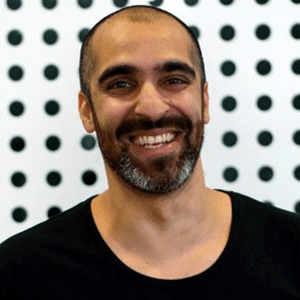

#9: Do great sales people have to be born a great sales person or can you train and develop a successful sales person?
Greg Donlan talks about the transformation of selling. He has had a long and successful carer in sales leadership, education and innovation across a diverse range of industries and has seen selling change dramatically.
Successful companies are using a modern approach to selling which is a sophisticated system and more about educating than selling, which is easy to replicate and achieve consistent results.
Stephanie: Today, I’m joined by Greg Donlan, who has had a very long and successful career in sales, sales leadership, sales education, and sales innovation. So I guess we’ll call it sales, and Greg has experience in retail, FMCG, telecommunications, transport, and manufacturing, just kind of for starters.
Greg’s a huge rugby fan, gave me a great book on the All Blacks recently, which I really enjoyed reading. But the secret about Greg Donlan is he’s a great bowls player. Aren’t you, Greg?
Greg: I’m too young for that.
Stephanie: Well, that’s the kind of interesting thing. So this would be Avalon?
Greg: Yes, it is up at Avalon, yeah. It’s a lovely sport.
Stephanie: A beautiful sport, is it?
Greg: A beautiful sport in a beautiful spot.
Stephanie: Great. Well, we’ll see you in the Commonwealth Games or whatever very soon, probably.
Greg: There’s the plan.
Stephanie: That’s the plan?
Greg: Yeah.
Stephanie: That’s good. Well, there you go. Greg, do sales people have to be born a sales person, or can you teach someone to sell?
Greg: It used to be that you had to be born, Stephanie, but I think things are changing, and now you can certainly train and develop salespeople.
Stephanie: Right.
Greg: But in a different way than we used to train them before.
Stephanie: Yeah, okay.
Greg: I believe that sales has turned more into a sophisticated system, and it’s probably more about educating than selling. This is what the successful ones are doing now. So whereas before we let them do their own thing, the good sales managers now have a structure. They have a system, and say if we get an inquiry, there are four or five steps over two weeks or two months, whatever it might be, or even two hours if it’s a commodity type sale. These are the things we do when we run it as a system, and if you run things like that as a system, it’s easy to replicate, so you get a consistent result.
Stephanie: If you’re running it as a system, and you’re saying, this is our plan, this is how it works, here’s our playbook for how we do sales here, you’d still have a variety of people that you’d be hiring into a sales role, wouldn’t you?
Greg: Of course you would, yes.
Stephanie: And traditionally people would say, ‘Well, the problem with hiring salespeople is they won’t do what you tell them.’ And I remember when I was a sales VP, way back, and my sales ops manager saying to me, ‘None of them do whatever you tell them to do, and you’re the worst.’
Greg: Yes, yeah.
Stephanie: Yes, perfect. Thank you,’ I said to him, but how is a more typical salesperson, not much attention to detail … Do you want me to make the money, or do you want me to do this admin? How does that person fit into your system approach?
Greg: Well, there’s always room I think for the mercurial player, someone who’s just got that gift. And I guess the argument often is, and I’ve seen this in lots of organisations where they say, ‘Well, I’ve got Freddy. He’s just sensational. I can’t afford to let him go, but he doesn’t play the system, or he doesn’t play the pattern.’
Now that’s great, and you let people go like that, but the challenge is then when their sales start to drop, and then all of a sudden they’ve got nothing to come back on to. They haven’t got a foundation or a base for a system. We saw that with the GFC, people that had been selling the way they had been selling for years were saying to me, ‘Oh, I can’t understand it. I’m doing the same things.’ But of course, the targets moved.
Stephanie: Yes.
Greg: So I think it’s so important that you have people that are adaptable. The people that are, I guess off the cuff, you know, sort of salespeople, they have their day, and probably you can afford to have one or two in a sales organisation of 10 or 12, but you can’t afford to have everyone like that now, because they’re hard to come by.
Stephanie: And so the issue is not only when times are tough, they don’t know what to do, the other thing is they can’t train people, can they? Because they are the people, you say, ‘All right, Freddy. You’re a gun, here’s my new person. Can you train them?’ They go-
Greg: ‘I don’t know what I do.’
Stephanie: ‘I don’t know what I do.’
Greg: Yeah, ‘It just happens.’
Stephanie: Yeah.
Greg: Yeah, so a good sales manager can actually pick the eyes out of what Freddie does, and teach others to replicate it. That’s the good teacher or the good trainer, and that’s where they build a best practice system for a business.
Stephanie: And we’ll get to the system. First of all, I’m still kind of interested about hiring individual salespeople, because I get asked about this. I was asked yesterday with a group of people I was with:
How do you identify if someone’s going to be able to be a good salesperson?
Greg: You watch them, and that’s very interesting-
Stephanie: Okay, tell me about that.
Greg: From asking them. So in my roles, differently, I often found myself 10-15 years ago, being called in by my clients to the final interview. They’d say, ‘Greg, we’re hiring a new sales person. We’ve got someone that we think is pretty good, but we’ve done this before and messed it up. Wouldn’t mind your opinion.’
So when I had the lamb to the slaughter. I’ve got a client who wants to hire this person. They just want me to say yes.
He’s good. They’re looking for confirmation. If you say no, I’m the bad guy.
But then I realised I’m sitting down across the desk from somebody asking them questions, and people in that sort of role aren’t bad talkers.
Stephanie: Well, that’s the idea, isn’t it?
Greg: Yeah, you’re good at cold calling. Oh, fantastic. Let me tell you about the time I did this, so then they can tell you the story, and they tell you all the theory, and then the day they start, you say, ‘Well, off you go.’ A couple of days later, and they’re still hanging around the office, and you’re scratching your head thinking to yourself, ‘What’s going on here?’ And they look at them and they say, ‘I’m still waiting for my business cards to come in, or I’m still waiting for the new brochure.’
Stephanie: I need a brochure.
Greg: Yeah, I’ve got to have a brochure.
Stephanie: If I had a better brochure … Gotta have a brochure. Yeah.
Greg: So in other words, they talked a bit of game and they played, and the challenge with interviewing people when hiring is that we tend to ask them questions. If you were a professional sports person, be it a netball, or a soccer player, or a footballer, or even a bowler, we just sit there and ask them questions?
Stephanie: No.
Greg: How do you tackle? ‘Oh, I around the legs, and I wrapped my head here, and I got my arms around there. Then I slide my arms down.’ Perfect. I’m thinking tick, tick, tick. This person knows how to tackle. Then you send them out on Saturday, and they’re a traffic policeman. They guiding people through. So the way to hire footballer is to go and watch them play.
Stephanie: So how are you doing this? Before I hire someone, what am I going to watch them do?
Greg: Well, I think that’s a system in itself.
In sales, you’re looking for people that can tailor their information. So when you put an ad out, you actually look at their response to see if it’s tailored, or have you got a standard response? There’s the first question. They understand that they need to be able to approach people differently, and put a little bit of effort into that.
Then you actually might even get down to some of the basics. You pick up the phone and ring them, and if you get voicemail, you listen to the message. Is it uhuh? Probably, we don’t need them. But if it’s, ‘Hi, it’s Greg. Thanks for your call,’ then probably that’s a good approach.
Stephanie: Right, yeah.
Greg: So when I get them in for an interview, this is what really works nicely, Stephanie, is when you get them in for an interview, you actually run an information session, where you get four or five candidates in together.
Now, I know you’ve got to be careful about conflict and confidentiality, but in most cases, I’ve not seen it really come unstuck or not work for that reason, but you get four or five people in, and you run an information session for them, it’s amazing what you can learn about their behaviour.
For instance, when they arrive at reception, you have somebody sitting down there. I’m looking for the one who’s chatty, who has a chat to reception. When you get them into the room, four or five together, introduced some around, and be quiet and to see so you can start the conversation in a semi-uncomfortable environment, who can keep that conversation going, and who asks questions about them rather than talking about themselves, and beating themselves on the chest the whole time.
So that’s, that’s a powerful environment. You’ve learned so much, and you haven’t even sort of asked them a question at that stage. Then you give them an overview of the company, ask a few questions back at the end to see how well they’ve listened.
Stephanie: Yeah.
Greg: Then get them to do a quick presentation on a background maybe you know, a favourite sale of theirs, nothing to do with where they’re working at the moment, and what they’re up to on the weekend. Watch people present in front of a group, which is sort of like a boardroom group, if you like, or a management group that they might be presenting to.
Then after that, this is one of the key, as well. Most people go away and wait for the potential employer to give them a call. But in sales, we don’t want people that sit on their hands and wait. We’re looking for people who are proactive. So the person you want isn’t the one that sits and waits for you to call back. It’s the one that actually jumps in, makes the call the next day, sends the email and says, ‘I’d love to see you again. I’ve thought about this, I could do the other.’ They’re the sort of people you want.
Stephanie: I love this, and I love anyone who’s listening to the podcast, who’s going for a role in sales, now has some ideas on how they’re going to nail it.
Okay, and and that’s good, Greg. That’s interesting, because that’s one of the traps, isn’t it? That if you’re hiring someone who’s high on influencing, and high on persuasiveness, they’re going to do well in a traditional interview.
What about a sales manager? What should you look for in a sales manager?
Greg: I think you’re looking for a teacher. Someone who’s able to mentor, coach, and lead in that area. Someone who can implement a strategy or a system. So you’re looking for evidence that they can follow a system. If you’re looking at the methodology that we’re talking about, the modern methodology of running sales as a system or a process, and I guess you’re also still looking for some of those old skills. People who can get out and deal with the major accounts, the key accounts that can present in front of your clients, as well.
I think what you’re not looking for, which is way sales has gone, is a desk jockey. Sales managers used to be out riding in the vehicle with their sales reps, or sitting beside them if they’re in the office, helping them, coaching them, and spending a lot of their time there.
Stephanie: What you’ve described in a sales manager, isn’t necessarily the best sales person coming through the ranks to be sales.
Greg: No, and that’s often the trap. That the best salesperson … And you understand it, people want to aspire to move up, and they see sales management as the next logical step in their career path. And for many, it is.
Stephanie: And then you use lose two good people, you lose a good sales person and then you don’t have a good sales manager.
Greg: And that’s not saying you shouldn’t do it, but we should perhaps spend time coaching sales managers on how to lead, how to mentor, how to ride shotgun. You know? On sales visits with people. How to train and how to coach. See, very few sales managers now to sit down at their monthly meeting, as I did when I was at the Coca Cola and Seiko and spend 20 minutes on skills, once a month. It’s a lost art.
Stephanie: So let’s get to the system idea. Tell me more about that.
Greg: Okay, so it used to be that we got… Well, all sales businesses have a system. Let’s just touch for example, on securing a new client. So we get an inquiry. Most businesses their system would be:
Well, let’s ask a few questions and qualify, if it comes in via email. The good ones pick up the phone and ring back, some don’t. Their system is that they just automatically provide a proposal, or a quotation, or send information. I saw you shudder.
Stephanie: Oh, terrible. And then say, I’ve sent the proposal, it’s in their court. Nothing more I can do. Yep.
Greg: Yeah, except for wait, or pick up the phone and hassle.
So there’s two systems there. One’s a qualify, quote, and hope.
That’s where you sit and do nothing, or the next one is you qualify, quote, and hassle.
Stephanie: Yeah, terrible.
Greg: Either way they’re not effective. Because the hassle one, where you just follow up, drives people away.
That’s why people, some people, don’t like sales people.
Stephanie: Yeah, that’s right.
Greg: Because they hassle us.
Stephanie: Pushy.
Greg: Yeah, pushy. So I believe a good sales process is actually now about educating people, and building momentum. So if you like, it’s a pre-planned journey. We know when we get an inquiry, as an example, they might be six steps over, and it depends on what you’re selling, but say two weeks. Yeah?
Those six steps are planned, and we don’t deliver all the information in the one go. For instance, you’ve had a son that’s gone to school, he’s a bit older than that now. But how many years did he get a school for?
Stephanie: 13.
Greg: 13?
Stephanie: He went all the way.
Greg: Why didn’t he just go for one?
Stephanie: Because the system is you do 13.
Greg: Because it takes a while to learn, doesn’t it? You have to learn something and then build on it, and then you’ll learn something else and build on that.
And I think a good sales system educates people about your business. What it’s going to be like. Say it’s a new client that you haven’t worked with before. It educates people on what it’s going to be like to work with firstly, your product or your service, then what it’s going to be like to work with your people, and then what it’s going to be like to work with your systems. So you gradually build this sort of thing into your process, and you stagger it over the period that you believe it takes people internally to make up their mind on the other side of the fence.
And by doing that gradual drip feed of information, and educating them about all those things, and often it’s the things that are going to happen after they sign, what it’s going to be like to work with you afterwards. That’s their void, or the unknown. If you can bring those things forward and put them into your sales process, then all of a sudden it becomes much easier to make a decision.
Stephanie: Because it’s about … Buying something is predicting, isn’t it? It’s predicting that if I do this thing, it’s going to have a good outcome for me.
Greg: Yeah, and this is the way they’ll treat me, and this is the outcome, and this is the way it’ll work, and what we’re trying to do is minimise that risk of the prediction, and turn it into a certainty. The more effort you put into that, the more likely it is that they’ll go ahead, because they know there’s less risk on the other side.
Stephanie: What about the idea of, you know, uncovering their pain and all of that?
Greg: Well, there’s consultative selling, and I think it still works. It’s important. Look, we grew up with features and benefits selling, which was really important, and still works, and then all of a sudden it was-
Stephanie: Solution selling. It’s easy, I think, because you don’t need to be terribly prepared, do you? You just need to be able to ask questions.
Greg: You do, but you’ve got to be able to link those questions to the solution.
Stephanie: Of course, of course.
Greg: So there’s some preparation involved there, but we move more now to an educational environment, where everybody’s doing the solution selling. How do you differentiate? How are you different? And I think it’s about educating people.
As I said about those three things, your product, your service, your customers … Sorry, your staff, your systems, but it all can go one step further. It’s about educating about their market, and about their business, and how they can potentially do things better if you’re able to offer that solution.
Stephanie: Yeah, right. And that’s insight, isn’t it?
Greg: Mm-hmm (affirmative). They have insights that you have about their industry.
For instance, I worked with a business last week that imports flowers, and one of the insights that they were able to come up with for the business was that the aircraft have changed, that bring flowers into the country, or bring people into the country.
Stephanie: Yeah.
Greg: There’s been a few troubles lately with planes, and they’re changing a lot of them over, and they’re now are able to educate people and say:
Well, look. The freight’s different now, because the planes that we are using now don’t have as much room for cargo. We’ve got to bring them in in smaller batches, or the freight’s gone up, or whatever it might be.
People in industry didn’t know that, but all of a sudden they say, ‘Ah, these guys know all about the industry. They can help me, and they can talk about market trends, and how to present different products. They’re the key things in education, I think that are different.
Stephanie: So that’s different, isn’t it? And that’s the idea that when you’re looking for sales person, you’re looking for their smarts there, aren’t you? That they’re going to be smart enough to be able to understand an industry, make sense of it, and then get into that teaching element of the sale.
Greg: Well, yes. To an extent, but I think we can short circuit that, in that the business perhaps might need to come up with the solutions, if you like, or the teachings for the team.
What if we got the new product specialist for a safety company that provides safety products for the construction industry? What if they were to make a little short video, or make a pdf with some information on it about new safety standards? Or new technology in the safety area that doesn’t necessarily relate to them? And each of the sales people now can distribute as part of their process, that little video piece, or that pdf in a templative way, that goes out to everybody, personalised with their name on it, but it’s part of the system.
You see? Now what the business is doing, it isn’t leaving it to chance for their entire team of individuals to be able to communicate and teach in that manner. We simply give them the script, the tools, and put it in front. Businesses are just starting to do that.
Stephanie: And customers more interested in something like that, that’s going to teach them, or add value to their understanding of their market, than a brochure.
Greg: I believe so, yes. Absolutely.
Stephanie: A lot less things going in the bin.
Greg: Exactly. I think there’s still room for both, but this area of spending, your marketing dollar, I believe, in the sales process on educational pieces is fantastic. You teach people what to look for when they buy. It’s amazing how people will actually be guided by that, and of course the clever people teach them the things that they’re good at.
Stephanie: To buy from me.
Greg: Yeah. Yeah, where we’re different.
Stephanie: Yeah, that’s really good stuff. So what’s the biggest challenge that you see in … You know, you do a lot of work, I know with kind of that mid-market sized business. What’s the biggest challenge that you see they have with sales in their organisation?
Greg: In a midsize business, a lot of the challenges often gaining momentum, and particularly not losing people, because once they do, when they rely on an individual, that momentum stops. If there’s a small number of salespeople in a business like that, they lose somebody, it has a massive impact on the momentum. And of course, now they’ve got to find somebody, then it takes them three or four months to get up and running again, and wow. Yeah, a significant percentage of your sales volume disappears.
How do you fix that? It’s you having those systems. So it’s like the netball team, you lose the wing attack, you’ve got somebody else who can come in and take their spot straight away, but they’ve practiced, they played the positions, they’ve got the playbook. And whilst it’s not quite the same, they pick it up so much faster.
Stephanie: It’s their time to productivity is going to be quicker.
Greg: Yeah, yeah. Exactly. You compress the ramp-up period.
Stephanie: So there is that, and that makes sense to me. People relying on someone to do it, or with the founder of a businesses, it’s often they’re the main sales person. Without a system. It’s their passion, their pure passion for the product or service they’ve developed.
Greg: Exactly, and Stephanie, I couldn’t tell you how many times I’ve gone into a business where the owner, the founder, has said, ‘I’ve been doing all the selling here. I’m starting to think I need to back away from that. I want to spend more time in the office to grow the business, or I want to back out of the business a little bit. I’m going to hire somebody in sales.’ And how often it’s happened that three months later or six months later, because they see the cash going out. We’re burning cash, we’re not getting any sales in.
Stephanie: They back in.
Greg: The new recruit is gone, and they’re back in. Yeah? And now it takes them another two years to have the courage to do it again.
Stephanie: I see that a lot, too.
Greg: It’s the preparation. They haven’t dissected what they do, built the systems, built the processes, and said, ‘Here’s your playbook. Start with that. Happy for you to adjust it over time, but this is what’s worked over the last 10 years.’
Stephanie: And that’s the important thing, isn’t it? If you know it works, then start with that, and then the expertise of the person who comes in can exactly refine it.
Greg: Exactly.
Stephanie: How do you keep good salespeople?
Greg: You look after them, you motivate them.
Stephanie: Are they motivated differently from consultants, or someone else in the business?
Greg: Perhaps a little, but here’s my cut on it If I’m putting together an incentive scheme for instance, which motivates, I think it’s always got to have three parts. It’s got to have a financial reward. So you know, there’s a certain percentage of their salary that is secure, and I think it’s important that there’s enough security there that people can pay their mortgage and buy the groceries, and feed the family, but then there’s a bonus, there’s a risk. That’s where you get your cream from, and where you can save, or plan for your holiday, or whatever. So that works. That’s effective.
I think there’s a second part of motivation in an incentive package that sits around. Some sort of a gift, or prize, or family even, thing. So maybe it’s a trip up the coast for a weekend, or a night out at a restaurant, where they can share that with others, because it’s powerful for people to be able to say, ‘Look what I’ve won. I’ll take you with me.’
And do you know what? The financial expense in doing something like that is not high, but I think the outcome, or the motivation-
Stephanie: Yes, it really pays off.
Greg: Is higher than it might be by just giving them the cash that went to pay for the electricity bill.
The third part is recognition, and we need to have more, I think end of year, a sales dinner or company dinner, and reward the highest sales person. Reward people for longevity. So if they’ve been there five years, and you they’ve turned over $2 million in sales in their territory, or $5 million a year, and they’ve reached the $20 million club, make a fuss of them, and give them something to put over their desk.
Stephanie: Really?
Greg: Yeah.
Stephanie: You think that’s still-
Greg: Ah, I can remember an organisation a few years ago in Adelaide, where there’s a senior guy, he’s been there for years, and he got to the $20 million club or whatever it might’ve been. He was the state manager as well as the sales person in South Australia, and I remember going down to his office and it was a ramshackle old office, covered in dust, but pride of place, behind his desk-
Stephanie: Was his plaque.
Greg: Was his plaque
Stephanie: Do you know what? You’re talking there about different ways of putting together an incentive plan., That’s relevant for non-sales people as well. That’s interesting.
Greg: Yeah.
Stephanie: I can see, Greg, why your business is called the sales coach, because number one, you have your sporting analogies through it, which is great.
Greg: Do we have a couple of those?
Stephanie: Yeah, one or two? But the other thing is that whole idea about have a system, coach around it, train people, teaching, that’s come up a lot. I think it’s been really clear from what you’ve been saying, that sales has changed as an art, and the science of sales has changed, and that it would be wrong for people to think that it’s easy. You hire someone who’s got the gift of the gab, and they’ll make it happen. That be far more clear about what your system is, how are you going to implement it, how you’re going to measure it, and how you’re going to train people to get up to speed with it.
Greg: Yep.
Stephanie: Beautiful.
Greg: Totally agree. Thank you.
Stephanie: Greg, thank you very much.
Greg: Thanks, Stephanie.
Stephanie: So that’s TEC Live for today. CEOs are in the business of making decisions, and leadership is the art of execution. I’m Stephanie Christopher, and look forward to talking to you next time.



